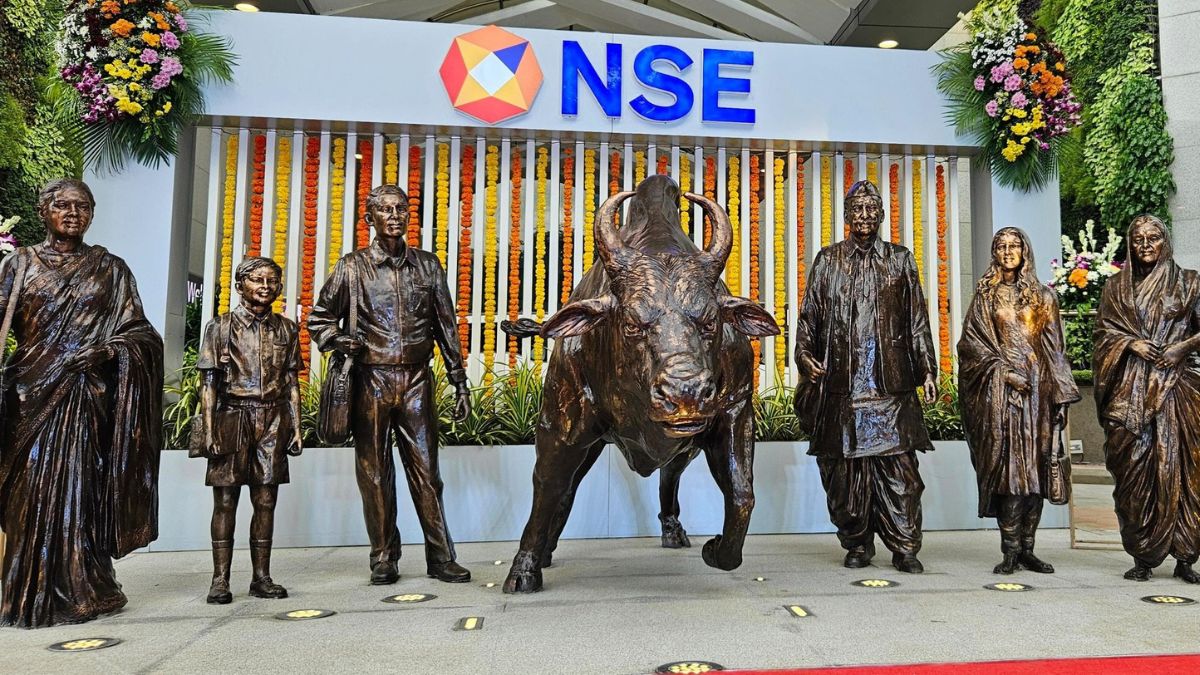After the massive sell-off in October, foreign institutional investors continued to sell Indian equity in November, although at a slower pace. The sell-off, though, coupled with tepid corporate earnings in the July-September quarter, continued geopolitical tensions in various parts of the world and the uncertainty around global trade and impact on major economies in the wake of Donald Trump's victory in the US Presidential election led to a correction in stock markets.
The 30-share BSE Sensex has declined 8 per cent since its life high of 85,978.25 it touched in November. The broader 50-share NSE Nifty 50 index has corrected around 9 per cent from its high of 26,277.35. Over October and November, foreign portfolio investors pulled out Rs 1.07 lakh crore from Indian equity markets.
The recent declines have led to several analysts revising their market estimates.
InCred Equities, for instance, has reduced its Nifty target by 3 per cent to 25,327, which is just about a 4 per cent upside from current levels but lower than the life high. Similarly, Prabhudas Lilladher now sees Nifty at 27,381, compared with 27,867 earlier, while reducing its Nifty earnings per share (EPS) targets by 0.5 per cent for the current financial year and 2 per cent for the next.
What's driving the somewhat pessimistic view among the analysts?
One point of concern is weakened earnings growth. Pramod Amthe, head of institutional equity research at InCred, said that the second quarter of Nifty EPS was flattish quarter-on-quarter as easing sales growth was overcome by cost controls and higher income. In the last couple of months, the consensus earnings per share targets for the Nifty have seen a 3-4 per cent cut, he pointed.
While valuations have eased a bit, Amthe expects market correction to continue for some more time.
"While the forward P/E (price-to-earnings) eased to below the 10-year mean level, we expect the correction phase to persist for a few more months, as the weak macroeconomic situation fails to impress on the EPS momentum front," he said.
Amnish Aggarwal, head of research at Prabhudas Lilladher, too, believes the headwinds are yet to peak.
"Demand conditions remain mixed with a steady uptick in rural demand given low base and normal monsoons. However, rising inflation is affecting demand in urban India, more so in metros and big cities, which account for 35 per cent of total demand in the economy," he stressed.
Results in the recent state elections like Haryana and Maharashtra, as well as bypolls in Uttar Pradesh and Bihar, which have consolidated the position of the ruling NDA government, will provide the much-needed stability and resolve to push reforms and could, in turn, drive growth, he felt.
Due to elections, capital expenditure spending was muted in the first half (April-September) of the current financial year. The expectation is that it will get a boost in the second half in areas like infrastructure, defence, railways, and energy. However, growing freebies and populism across states could impair capex spending, Aggarwal felt.
The slowdown of urban demand, high inflation impacting demand, delay in interest rate cuts, and geopolitical uncertainties also remain headwinds.
Amthe of InCred, too, feels the capex plan could get a boost with a strong political mandate for the BJP in recent assembly polls. But, challenges from global tariff disturbance, rupee depreciation and a slow recovery in government capex are areas of concern, he said.
He also feels the rise in retail inflation will push the Reserve Bank to delay interest rate cuts to the 2025 calendar year.



